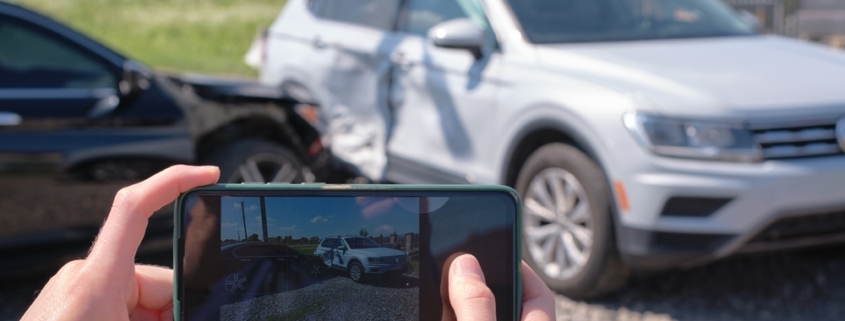The Importance of Timely Evidence Collection After a Car Accident
A car accident can be a life-altering event, leaving emotional, physical, and financial impacts. While your safety is always the top priority, what you do immediately after a crash can significantly affect the outcome of potential insurance claims or legal proceedings. Timely evidence collection plays a critical role in the process and can safeguard your rights in the aftermath of an accident.
If you’re unfamiliar with navigating these situations, an experienced car accident attorney can guide you. At Cockayne Law in West Jordan, Utah, we understand the importance of acting quickly and can help you gather and preserve critical evidence to support your case.
Why Is Evidence Collection Crucial?
Evidence tells the story of what happened before, during, and after the accident. Accidents can be chaotic, with emotions running high and confusion clouding the details. Over time, memories fade, eyewitnesses become difficult to locate, and crucial physical evidence can disappear.
By collecting evidence promptly, you create a stronger foundation for proving liability, damages, and injuries. This is valuable not just for insurance claims but also if you choose to pursue compensation through a lawsuit.
Types of Evidence You Should Gather
Below are some of the most critical types of evidence to collect after a car accident, each of which can help paint a clear picture of what occurred.
1. Photographic Evidence
The saying “a picture is worth a thousand words” couldn’t be more accurate when it comes to car accidents. Photographs provide undeniable proof of the accident’s aftermath and can be used to reconstruct the scene.
What to photograph:
- Damage to all involved vehicles
- Skid marks or road debris
- Road conditions (e.g., wet pavement, potholes)
- Other property damage (e.g., guardrails, signs)
- Traffic signs and signals near the accident site
- Injuries to yourself or passengers
The more detailed your photos, the clearer the evidence becomes. Take shots from multiple angles, ensuring you capture the entire scene.
2. Police Report
When law enforcement arrives at the scene, they draft a police report documenting their observations and key information like the time, location, and parties involved. This report often includes an initial assessment of fault, eyewitness accounts, and any traffic violations.
Ensure you request a copy of the police report for your records. It’s a valuable document that your car accident attorney can use to support your case.
3. Witness Testimonies
Eyewitnesses can provide objective accounts of the accident. Their testimonies can bolster your claims, especially if they corroborate your version of events. If possible, speak to witnesses immediately after the incident. Collect their:
- Full name
- Contact information (phone number and email)
- A brief statement of what they observed
Your attorney may follow up with witnesses for more in-depth information if needed.
4. Medical Records
Even if you believe your injuries are minor, seeking medical attention is crucial for both your health and your case. Delayed symptoms, such as whiplash or internal injuries, can arise days or even weeks after the crash. Medical records provide concrete documentation of your injuries and connect them to the accident.
Retain records of:
- Emergency room visits
- Diagnostic tests (e.g., X-rays, MRIs)
- Treatment plans
- Prescribed medications
Medical records not only support your injury claim but also demonstrate the impact the accident has had on your life.
5. Dashcam or Surveillance Footage
If your vehicle or a nearby business had cameras rolling during the crash, the footage could serve as compelling evidence. Dashcam footage often provides unbiased video proof of events leading up to the accident, while security cameras may capture important angles not visible from the road.
6. Documentation of Expenses
Keep detailed records of all accident-related expenses. This includes:
- Vehicle repair costs
- Medical bills
- Lost wages due to missed work
- Out-of-pocket expenses (e.g., car rentals, transportation)
These records are essential for calculating the financial compensation you may be entitled to.
Challenges of Delayed Evidence Collection
Failing to gather evidence promptly can severely weaken your case. Here are some challenges you might face due to delays:
- Fading Memories: Witnesses and involved parties may struggle to recall key details with time.
- Lost Physical Evidence: Skid marks may fade, vehicles may be repaired, and accident debris is often cleared quickly.
- Difficulty Locating Witnesses: Without immediate contact information, witnesses may become untraceable.
- Disputed Liability: Without strong evidence, insurers or opposing parties may challenge your version of events.
Working with a skilled car accident attorney can help you avoid these pitfalls.
How a Car Accident Attorney Can Help
At Cockayne Law in West Jordan, Utah, we understand the complexities of car accident cases. When you partner with us, we ensure that no stone is left unturned in collecting and preserving evidence. Here’s how we can support you:
- Conducting an independent investigation into the accident
- Gathering and reviewing medical records, dashcam footage, and witness testimonies
- Engaging experts, such as accident reconstruction specialists, to strengthen your case
- Handling communication with insurance companies on your behalf
Our goal is to help you secure the compensation you deserve and allow you to focus on recovery.
Take Immediate Action After an Accident
Timely evidence collection is critical for building a strong car accident case, and you don’t have to handle it alone. The right legal representation can make all the difference in protecting your rights and obtaining the compensation you need.
If you’ve been involved in a car accident in the West Jordan, Utah area, contact Cockayne Law today. Schedule a free consultation with one of our experienced car accident attorneys, and let us guide you through this challenging time with compassion and expertise.









